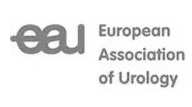What is Ureteric Colic?

Ureteric colic is a sudden onset of intolerable pain in the lower abdomen caused by obstruction in the ureter due to calculi or spasms. It is a medical emergency that has to be managed as soon as possible. About 5-12% of people may suffer from ureteric colic, due to obstructed urine flow by urinary tract stones. Among them 50% experience recurrence. This condition is mostly seen in adults.
What Causes Ureteric Colic?
The contributing factors for ureteric colic include:
- Dehydration
- Excess consumption of minerals and a protein-rich diet
- Certain medications
- Ureteric calculi (stone deposits)
- Hypertension
- High cholesterol
- Diabetes
- Abdominal infection such as ulcerative colitis, Crohn’s disease etc
- Renal disorders
Symptoms of Ureteric Colic
You may experience the below signs and symptoms;
- Intense pain from the flanks through lower ribs to groin or hip
- Pain waves radiate from the back towards the front of the lower abdomen
- Vomiting and nausea
- High grade fever and chills
- Tenderness in the costovertebral angle or flanks
- Haematuria (blood in the urine)
- Difficulty or pain while passing urine
- Reduced urine flow or complete obstruction
- Grains or stone material in the urine
Diagnosis of Ureteric Colic
A diagnosis is made based on the patient history and physical examination. Your doctor will order a basic metabolic panel (blood test) to assess kidney function. Other tests that may be ordered include:
- Urinalysis
- Urine culture
- CBC (complete blood count)
- RFT (renal function test)
- Imaging tests:
- Kidney ,Ureter and Bladder (KUB) X-ray
- Ultrasound
- CT Scan
- Intravenous urography
- Abdominal X ray
Treatment of Ureteric Colic
The stones which are deposited in the ureter will pass spontaneously by traditional fluid flush therapy or medical expulsive therapy (MET). Stone size less than 5mm will usually dissolve or flush out within 1-2 weeks.
If colic pain persists even after conservative measures or the size of the stones are too big or associated with higher complications, then the patient requires surgical intervention.
Non-Surgical Management
- The first line of treatment is conservative and includes:
- IV fluids administration to flush out the obstruction
- NSAIDS to reduce local oedema and inflammation
- Corticosteroids for decrease inflammation
- Calcium antagonists to relax the ureteric smooth muscles
- Alpha blockers to inhibit the basal tone and peristaltic frequency in the ureter
- Parental antibiotics to treat infections
Surgical management
Your urologist decides which minimal invasive procedure is appropriate, such as shock wave lithotripsy, ureteral stenting or ureterostomy after assessing the condition. The choice of procedure will be based on the degree of intensity, size and location of the stone and other associated complications.
Prognosis of the Ureteric Colic
Failure to treat the condition could lead to the following complications:
- Renal damage
- Sepsis
- Hydronephrosis
- Urinary tract infection
- Electrolyte imbalance
- Ureteric Colic
Prevention
- Adequate intake of fluids at least 3-4 litres per day
- Avoid excess consumption of protein and minerals in diet
- Consume fresh vegetables and fruits, especially citrus fruits
- Maintain low sodium intake in diet
- Consume lean animal protein
- Avoid self-medication
- Exercise regularly







